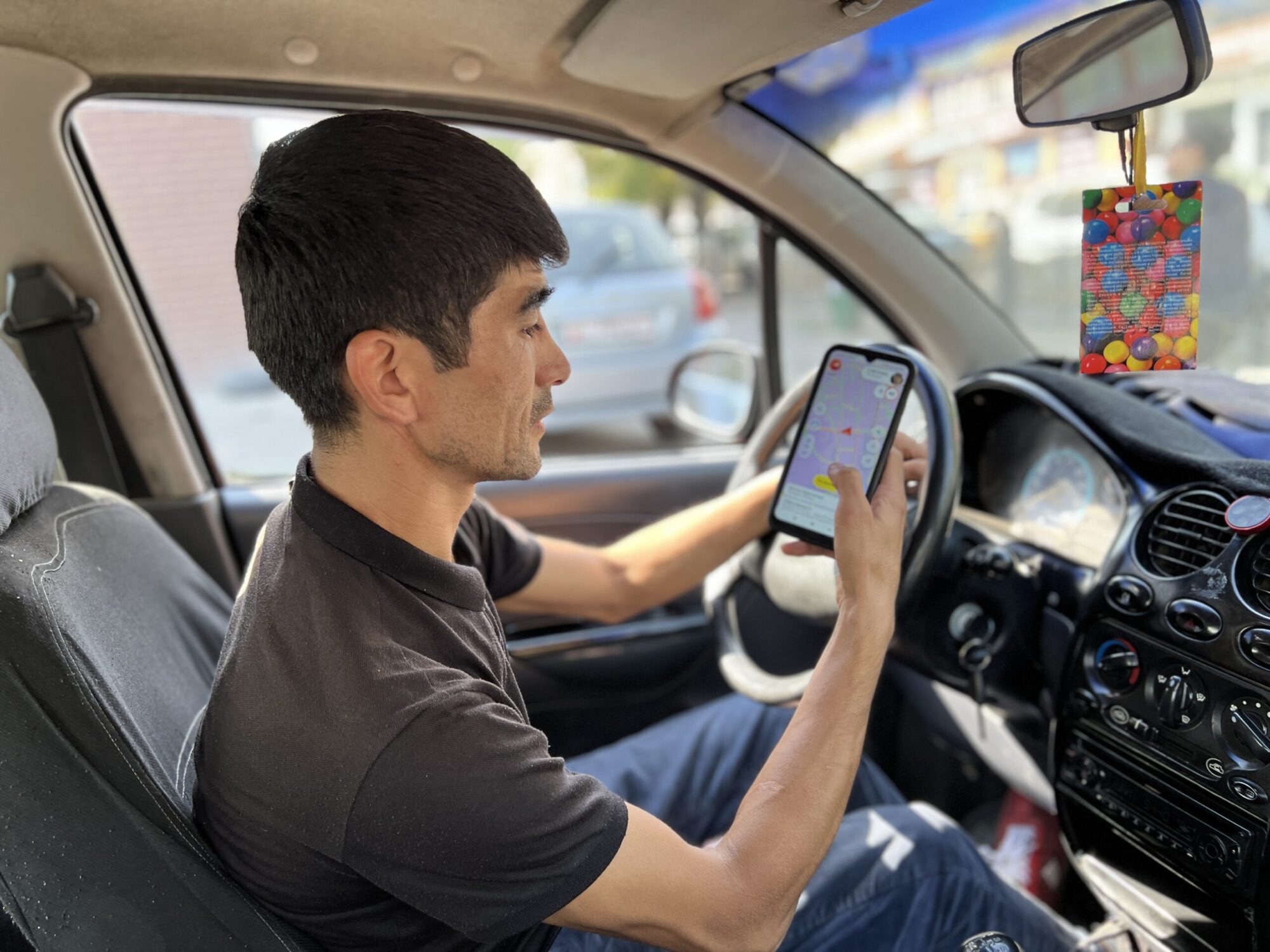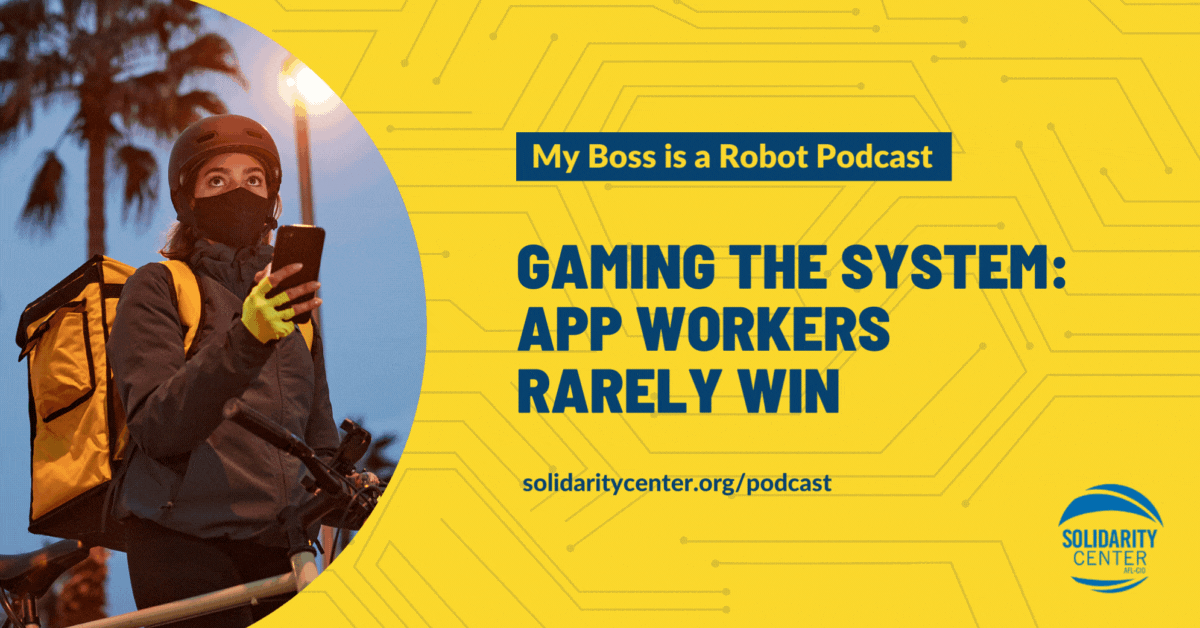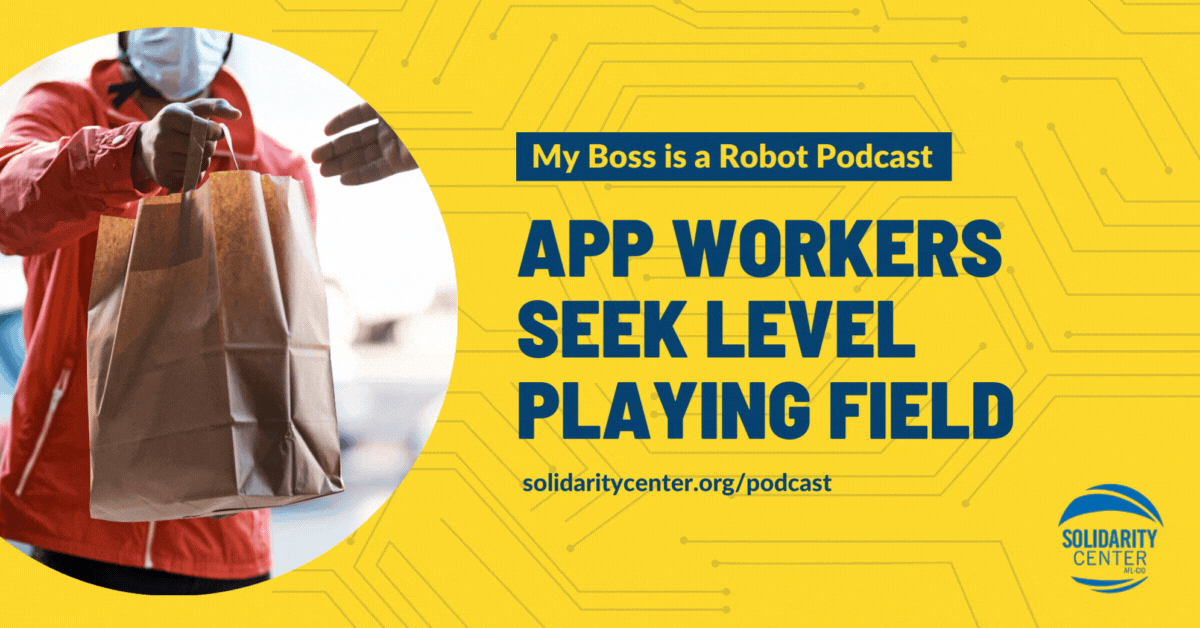App-based drivers in Osh, Kyrgyzstan, achieved a historic milestone by negotiating a first collective bargaining agreement with a leading platform-based transportation company, Osh Taxi. The September 29 pact, negotiated by the Kabylan union, extends beyond union...

The Solidarity Center assists workers in the informal economy, such as market vendors in Zimbabwe, come together to assert their rights and raise living standards. Credit: ZCIEA
Some 2 billion people work in the informal sector as domestic workers, taxi drivers, and street vendors, many of them women workers. Informal economy work now comprises the majority of jobs in many countries and is increasing worldwide. Although informal economy workers can create up to half of a country’s gross national product, most have no access to health care, sick leave or support when they lose their jobs, and they have little power to advocate for living wages and safe and secure work.
The Solidarity Center is part of a broad-based movement in dozens of countries to help workers in the informal economy come together to assert their rights and raise living standards. For instance, three affiliates of the Central Organization of Trade Unions-Kenya (COTU-K), a Solidarity Center partner, signed agreements with informal worker associations to unionize the workers, enabling them to access to the country’s legal protections for formal-sector employees.
Find out more about informal workers gaining power by joining together in unions and worker associations in this Solidarity Center-supported publication, Informal Workers and Collective Action: A Global Perspective.
Podcast: Gaming the System: App Workers Rarely Win
Food delivery and passenger service drivers and are forced to follow the company apps. But if apps miscalculate and send drivers in the wrong direction, or lower wages for drivers stuck in traffic, it’s the driver who loses wages, or is even booted from the platform....
App Workers Seek Level Playing Field
For many job seekers, joining the ranks of delivery drivers or other app-based workers is sold as entrepreneurship–a way to make money as an independent contractor and be their own boss. But the reality is much different, as workers from Africa to Latin America have...
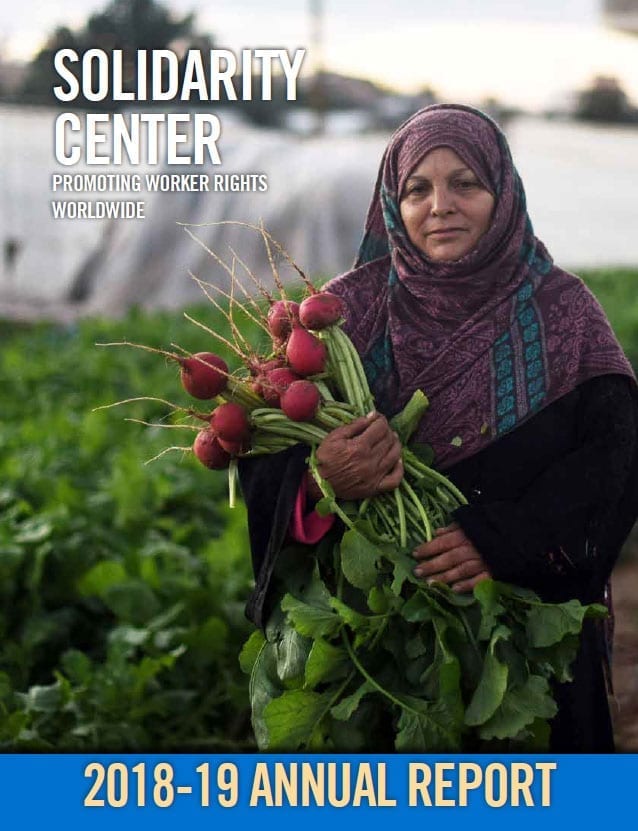
Annual Report, 2018–2019
Download here.
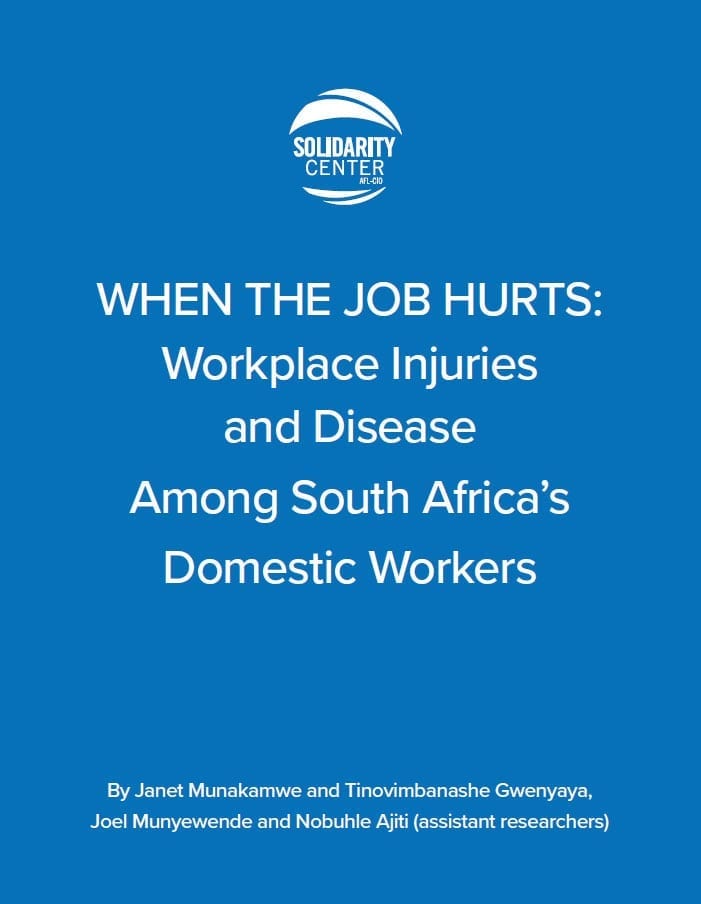
When the Job Hurts: Workplace Injury and Disease among South Africa’s Domestic Workers
Through individual case studies and legal analysis, When the Job Hurts demonstrates the need for domestic workers in South Africa to receive the same coverage under the country's job safety and health compensation law as other workers. Download report.
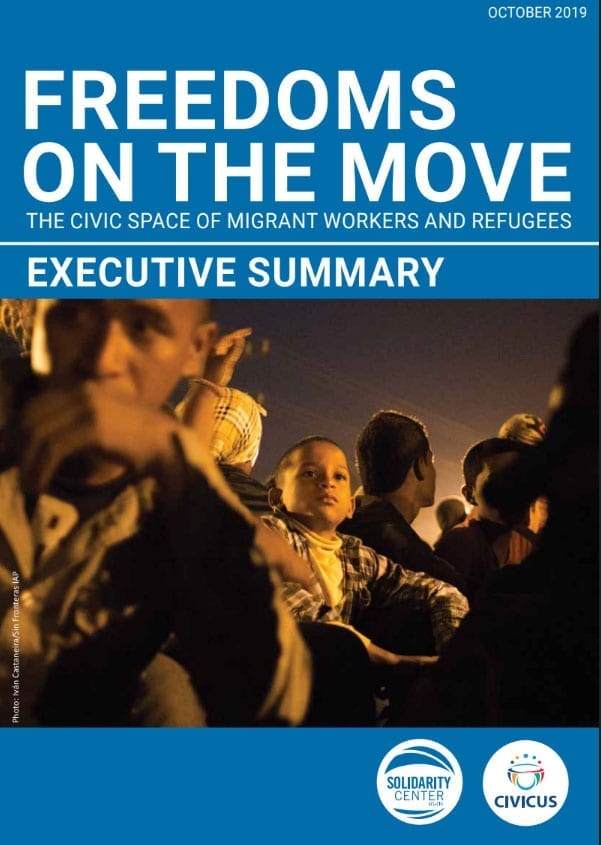
Freedoms on the Move: The Civic Space of Migrant Workers and Refugees
Freedoms on the Move, a new report by Solidarity Center and CIVICUS, makes clear that many migrant workers and refugees want to have a say in their communities and their workplaces, and in the decisions that affect their lives—and is an urgent call to action for...
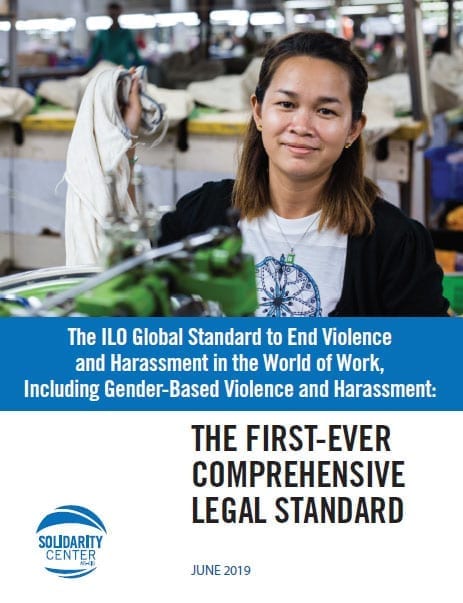
ILO GBV at Work Standard: First-Ever Comprehensive Legal Standard
A Solidarity Center legal analysis shows the proposed ILO convention on gender-based violence and harassment at work is necessary because no global binding instrument exists that comprehensively addresses violence and harassment in the world of work, including...
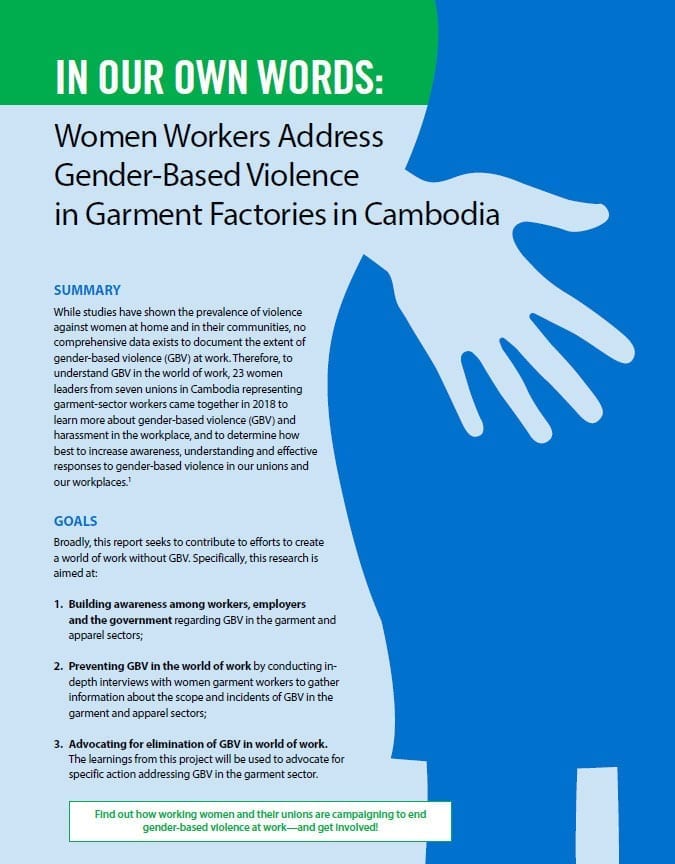
In Our Own Words: Women Workers Address Gender-Based Violence in Garment Factories in Cambodia
While studies have shown the prevalence of violence against women at home and in their communities, no comprehensive data exists to document the extent of gender-based violence (GBV) at work. To better understand GBV at work, 23 activists and female leaders of workers...
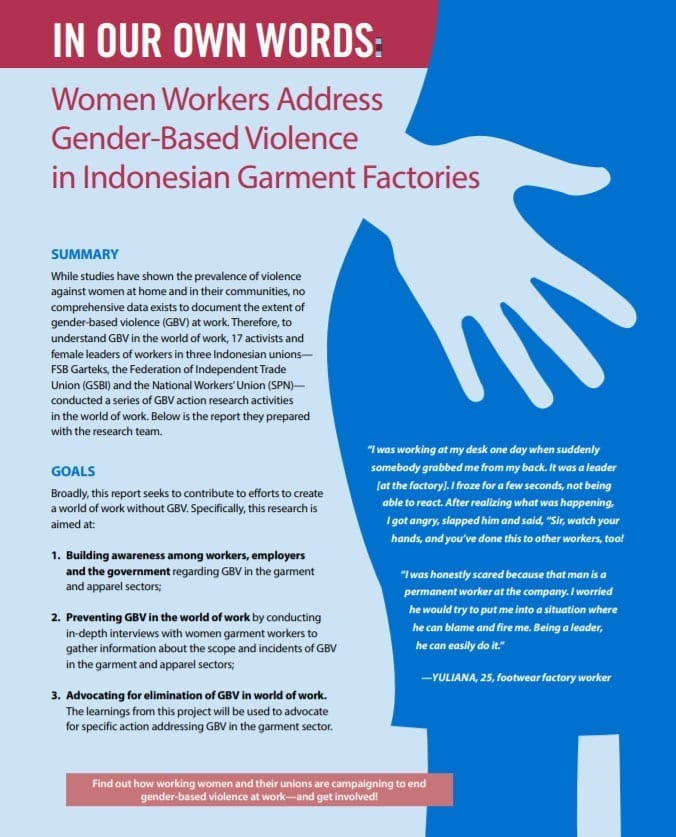
In Our Own Words: Women Address Gender-Based Violence in Garment Factories in Indonesia
While studies have shown the prevalence of violence against women at home and in their communities, no comprehensive data exists to document the extent of gender-based violence (GBV) at work. To better understand GBV at work, 17 activists and female leaders of workers...

